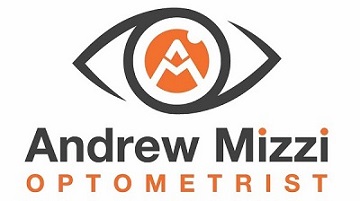 Good vision plays a crucial role in your child’s growth and learning. From reading their first book to exploring the world around them, clear eyesight is essential for their development.
Good vision plays a crucial role in your child’s growth and learning. From reading their first book to exploring the world around them, clear eyesight is essential for their development.
Regular paediatric eye exams in Kingswood, Penrith ensure that any potential vision problems are detected early, setting your child up for lifelong eye health.
Importance of Children's Eye Exams
Many parents assume their child has perfect vision if they don't complain about their eyesight. However, children may not always realise they have a vision problem, as they assume their vision is normal. Regular eye exams can help detect and address issues before they impact daily life.
Eye exams are essential for:
- Learning and Development: Good vision is crucial for academic success and social interactions.
- Early Detection of Issues: Many vision problems can be corrected more easily if caught early.
- Overall Eye Health: Routine exams help prevent long-term complications by monitoring eye development.
The earlier vision issues are identified, the easier they are to manage, making routine eye exams a critical part of your child’s health routine.
Signs Your Child Needs an Eye Test
Recognising the signs of a potential vision problem is essential for timely intervention.
Some common indicators that your child may need an eye test include:
- Frequent eye rubbing or blinking
- Complaints of headaches or eye strain
- Holding books or screens too close
- Squinting or tilting their head to see better
- Difficulty concentrating in school
- Avoiding reading or other close-up activities
If you notice any of these signs, it’s a good idea to schedule an eye exam with a qualified optometrist.
Best Age for a Child's First Eye Exam
Experts recommend that children have their first comprehensive eye exam at around 6 months of age, followed by another at age 3, and again before they start school at age 5 or 6. After that, routine exams should take place every two years—unless an optometrist advises more frequent check-ups.
Early eye exams help detect issues such as:
- Amblyopia (Lazy Eye): Reduced vision in one eye due to abnormal visual development.
- Strabismus (Crossed Eyes): Misalignment of the eyes that can affect focus and depth perception.
- Refractive Errors: Conditions like myopia (short-sightedness), hyperopia (long-sightedness), and astigmatism that impact clarity of vision.
Regular exams are key to identifying these conditions before they affect your child’s learning and daily activities.
Paediatric Optometry Services in Kingswood, Penrith, NSW
A paediatric eye exam is more than just reading an eye chart. Optometrists use child-friendly methods to assess various aspects of your child’s vision, including:
- Visual Acuity: How clearly your child can see at various distances.
- Eye Coordination: Ensuring both eyes work together effectively.
- Depth Perception: Assessing the ability to judge distances accurately.
- Eye Health Evaluation: Checking for any underlying conditions that may impact vision.
These exams provide valuable insights into your child’s overall eye health and help ensure proper visual development.
How Eye Exams Support Child Development
Clear vision is closely linked to a child's cognitive, social, and physical development. Undiagnosed vision issues can contribute to:
- Poor academic performance
- Delayed motor skills
- Reduced confidence in social settings
- Difficulty with hand-eye coordination in sports and activities
By addressing vision concerns early, eye exams can help your child thrive in school and beyond.
Tips for Preparing Your Child for an Eye Test
Preparing your child for their eye exam can help ease any anxiety and ensure a smooth experience. Here are a few helpful tips:
- Explain the Process: Let them know the optometrist will check how well they can see and make sure their eyes are healthy.
- Practice at Home: Use fun games to simulate eye tests, such as covering one eye and looking at objects.
- Bring Comfort Items: A favourite toy or book can help them feel more at ease during the appointment.
- Schedule Wisely: Choose a time when your child is well-rested and alert for the best cooperation.
Preventing Vision Issues in Children
Healthy vision habits can help prevent or delay vision issues in children. Encourage your child to:
- Follow the 20-20-20 rule to rest their eyes during screen time.
- Get plenty of outdoor playtime to support eye development.
- Eat a balanced diet rich in eye-healthy nutrients such as vitamin A and omega-3 fatty acids.
- Wear sunglasses or a hat outdoors to protect against UV rays, which are particularly intense in Australia's sunny climate.
Regular check-ups with an optometrist remain the most effective way to ensure long-term eye health.
At Andrew Mizzi Optometrist, our team is dedicated to helping children maintain clear and healthy vision. Visit us at Kingswood, Penrith to book your child’s next eye exam.
